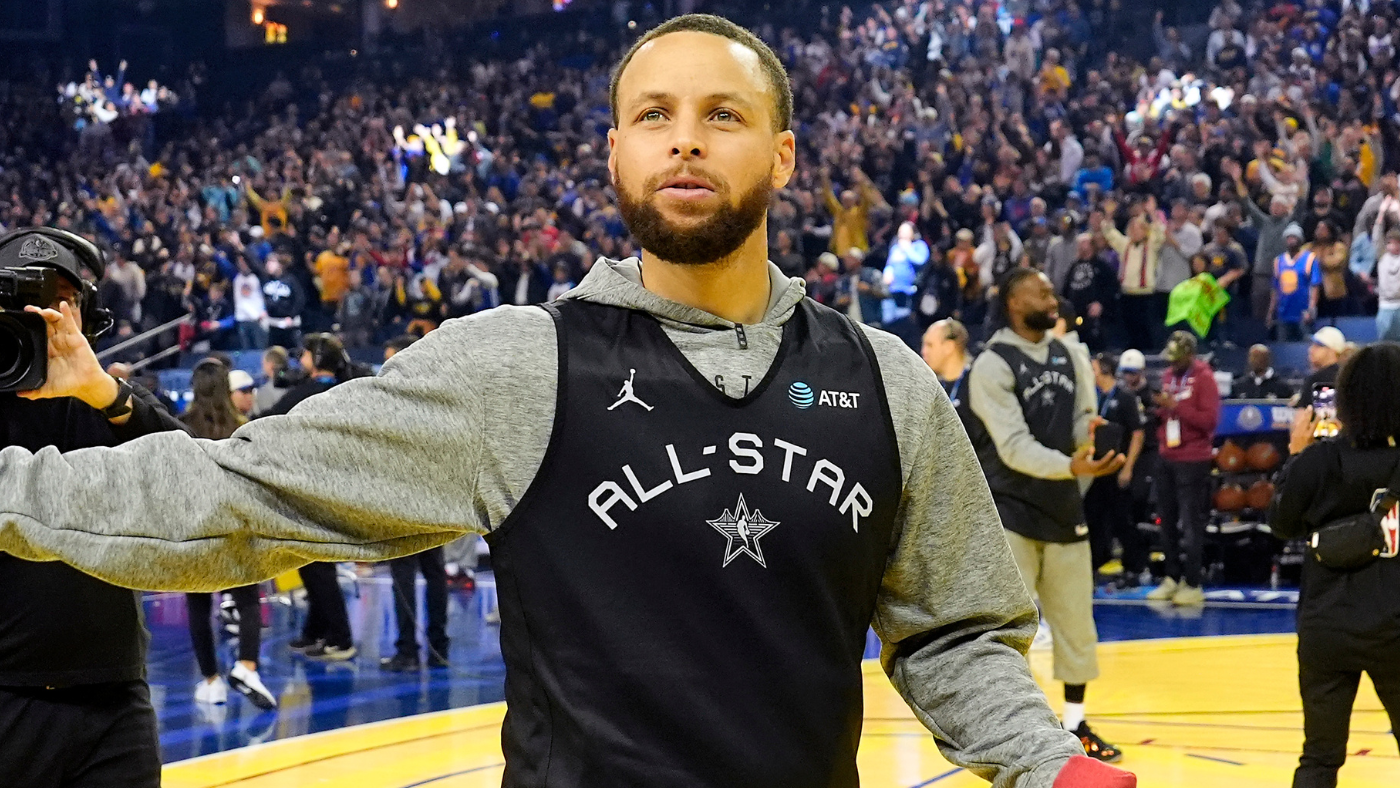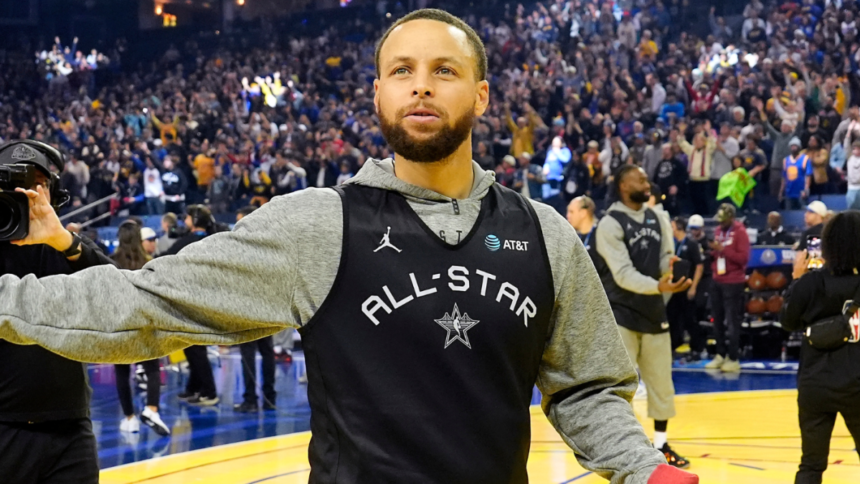
During media day on Saturday afternoon ahead of the NBA All-Star Game on Sunday, Golden State Warriors star Steph Curry was asked what rule he would change if he were commissioner for a day. Curry focused on a topic that fans and many of his fellow players bring up consistently: officiating.
Curry didn’t exactly offer an on-court rule change, but he did suggest that the league should offer more public information about how referees are evaluated.
“I would probably want to see the refs’ grading system probably, like let that be more public, the same kind of way our stats are shown on a nightly basis,” Curry said. “Not to make their job any harder because it’s a really hard job, but it would be interesting from a fan and player perspective to know why a ref is a great ref and how they kind of rate their system a little bit. I’m curious about that.”
Curry is not the first person to make such a suggestion. Another common refrain, especially after missed calls in important games, is that officials should have to do postgame press conferences. None of that is likely to happen, but the league does have a rigorous process for assessing how its referees are performing.
In 2022, Ben Dowsett of the now-shuttered FiveThirtyEight wrote a deep dive into the NBA’s internal officiating review system, which uses vast amounts of video and data to not only grade every single call, but look at how referees are positioned on the court.
“We realized we had [too many] incorrect decisions made from the lead position,” Mark Wunderlich, a former official who now works as the vice president of referee operations, told FiveThirtyEight at the time. “When we did the tracking of those misses, we realized the official was too tight.
“Any strong-side or down-lane drive, if an official was inside 8 feet to the baseline to the rim, he didn’t have a big enough picture to see the play. When we got outside 9 feet and a little bit wider, our vision angle expanded, and we ended up reducing our error count because the analytics proved to us that width was better from the lead position. … So when we went to [preseason] camp, we banged home plays that we had missed being too tight on video, through the help of the analytics.”
Veteran referee Scott Foster also touched on the topic during a recent episode of the NBA Referee Association’s podcast, “NBA Referee Roundtable.”
“The most misunderstood aspect of officiating is that we’re not held accountable, that we do whatever we want, that we care who wins,” Foster said. “That’s just not the case. I think that from my first day in the NBA, the accountability on Nov. 9, 1994, the day I started, to today, has gotten to an astronomical, exponential way of doing things. We are graded on every single play, we are graded on every single decision, we are held accountable when we don’t do what we’re supposed to be doing out there. We can’t be going out there doing what people accuse us of doing, which is getting plays wrong on purpose. That’s just not possible.”
It would be fascinating if the NBA shared even some of the internal data regarding officials, but again, that’s probably not going to happen. Regardless, it’s clear lots is being done to improve the officiating year over year. The simple truth is that with speed, athleticism and physicality in the league continuing to rise, officiating games is harder than ever.






